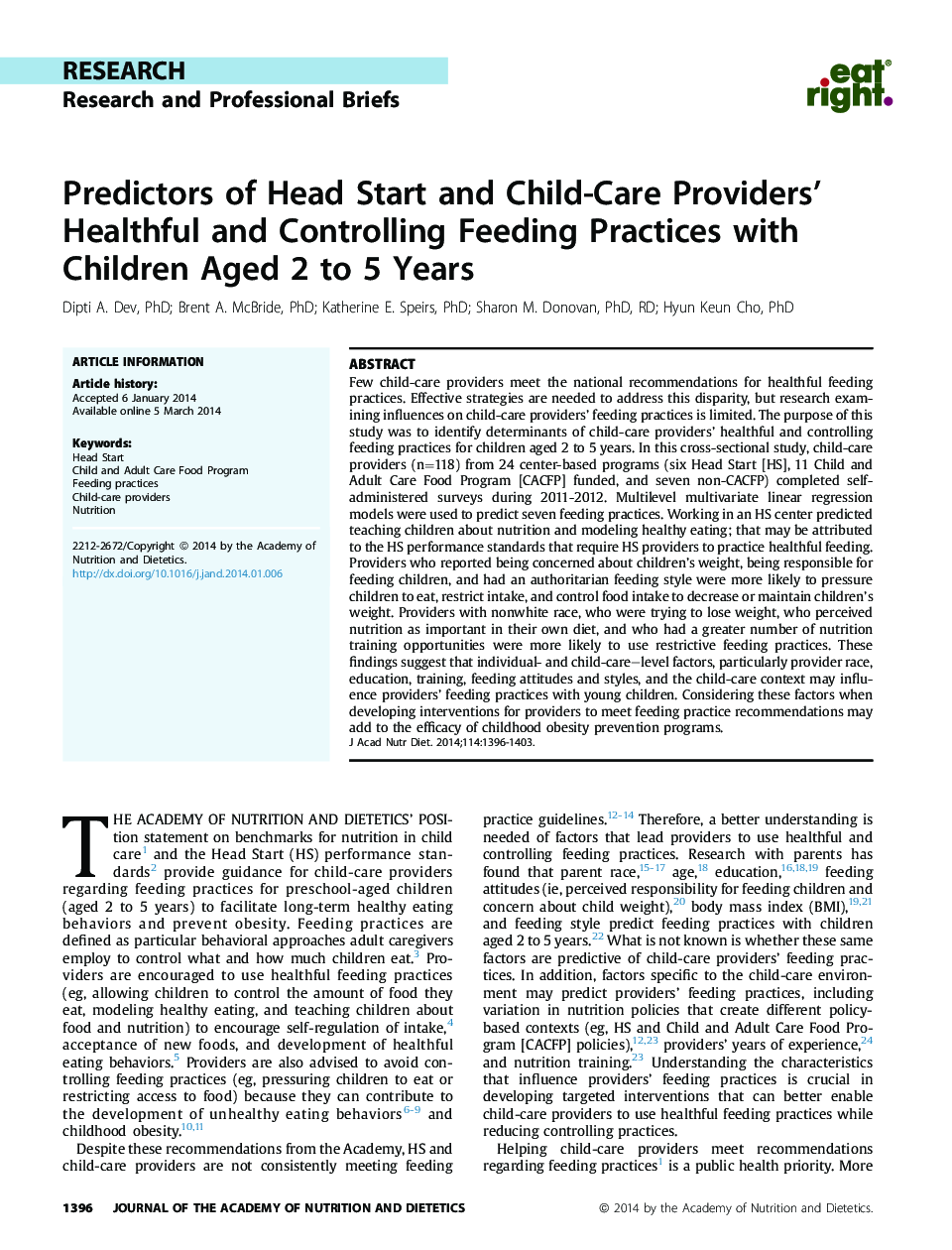| کد مقاله | کد نشریه | سال انتشار | مقاله انگلیسی | نسخه تمام متن |
|---|---|---|---|---|
| 2656719 | 1564060 | 2014 | 8 صفحه PDF | دانلود رایگان |
Few child-care providers meet the national recommendations for healthful feeding practices. Effective strategies are needed to address this disparity, but research examining influences on child-care providers' feeding practices is limited. The purpose of this study was to identify determinants of child-care providers' healthful and controlling feeding practices for children aged 2 to 5 years. In this cross-sectional study, child-care providers (n=118) from 24 center-based programs (six Head Start [HS], 11 Child and Adult Care Food Program [CACFP] funded, and seven non-CACFP) completed self-administered surveys during 2011-2012. Multilevel multivariate linear regression models were used to predict seven feeding practices. Working in an HS center predicted teaching children about nutrition and modeling healthy eating; that may be attributed to the HS performance standards that require HS providers to practice healthful feeding. Providers who reported being concerned about children's weight, being responsible for feeding children, and had an authoritarian feeding style were more likely to pressure children to eat, restrict intake, and control food intake to decrease or maintain children's weight. Providers with nonwhite race, who were trying to lose weight, who perceived nutrition as important in their own diet, and who had a greater number of nutrition training opportunities were more likely to use restrictive feeding practices. These findings suggest that individual- and child-care–level factors, particularly provider race, education, training, feeding attitudes and styles, and the child-care context may influence providers' feeding practices with young children. Considering these factors when developing interventions for providers to meet feeding practice recommendations may add to the efficacy of childhood obesity prevention programs.
Journal: Journal of the Academy of Nutrition and Dietetics - Volume 114, Issue 9, September 2014, Pages 1396–1403
